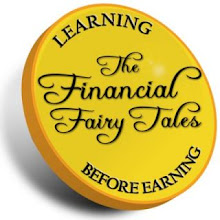Goal Setting for Kids
By Winsome Coutts
Ever thought about Goal Setting for Kids? Goal setting is one of the most important skills that a person can learn, and the earlier this skill is learned, the more chances there are for successful outcomes in a person’s life. Adults know that goal setting is all about planning, making progress with that plan and reaching final goals or achievements. Once a child learns how to do this, they can use this tool for more success in school and at home.
Goal setting for kids will help your children to do well on their school tests and in activities such as sports, music programs or outside academic or arts programs - even at home, and with their personal finances. Teaching your child how to be a goal setter will give them a sense that they are capable of whatever they want to do. That’s valuable!
To learn more about Goal Setting for Kids, click here:
How to help your child be a goal setting child
Goal setting for children is basically the same as for adults, with a few caveats. Because they are young, and not as emotionally or cognitively developed, goals should be smaller and more tangible. The idea with goal setting for kids is to get them started in the life-long frame of mind for thinking, planning and taking action to achieve results. The basic premises of goal setting remain the same. You can help your child learn to set goals by working through these steps with him:
Ask, “What do you want to achieve?” – Help your child describe in specific terms something he would like to do that will take some work/planning (getting an A on his next math test, earning money to purchase a certain kind of bicycle).
Ask, “How will you get there?” – Help him plan out the steps to take and the mini-goals to reach on his way to the ultimate goal.
Establish accountability – Have your child write down what he wants to achieve and what his plan for getting there is. He can read it each day to help him with personal accountability, and he can share it with you, or another trusted adult to help him stay motivated, inspired and on-track.
Achieve – Achievement is not only for the final outcome, but also for the small goals that are met along the way.
Review plan/goals/outcomes – Throughout the process and at the end as well, review with your child the plan and how it is going. Do adjustments need to be made? How does he feel about his progress and where it is leading? How was the goal setting experience for him?
If your child does not reach his ultimate goal, talk to him about what he learned on the way. He still has learned valuable lessons about planning and goal setting, and he’s probably learned about himself. Encourage him to not give up on dreams that are important to him, but that if one plan doesn’t work, he has to revise the plan and try again.
Teaching your child to be a goal-setting child is one of the best things you can do.
You will be giving him or her, a valuable gift that they will use for their entire lives, empowering them to achieve wonderful things in every area of life. Goal setting for kids is a skill that will be built on throughout an entire lifetime. For a fantastic resource about , go to Goal Setting for kids
Winsome Coutts holds a teacher’s certificate in education and has written hundreds of articles on self-development. She has studied with Bob Proctor and John Demartini, popular teachers featured on “The Secret” DVD. She is the passion behind the www.4lifehappykids.com and is a parent and grandparent.
Winsome is author of “Go for Your Goals” for kids – a set of downloadable e-books that guide your child through the joyful steps of learning visualization, goal-setting and the Law of Attraction. Simple language enhanced with beautiful illustrations and worksheets make these books appealing and motivating. To learn more, visit www.4lifehappykids.com
Labels: goal setting for kids, goals

